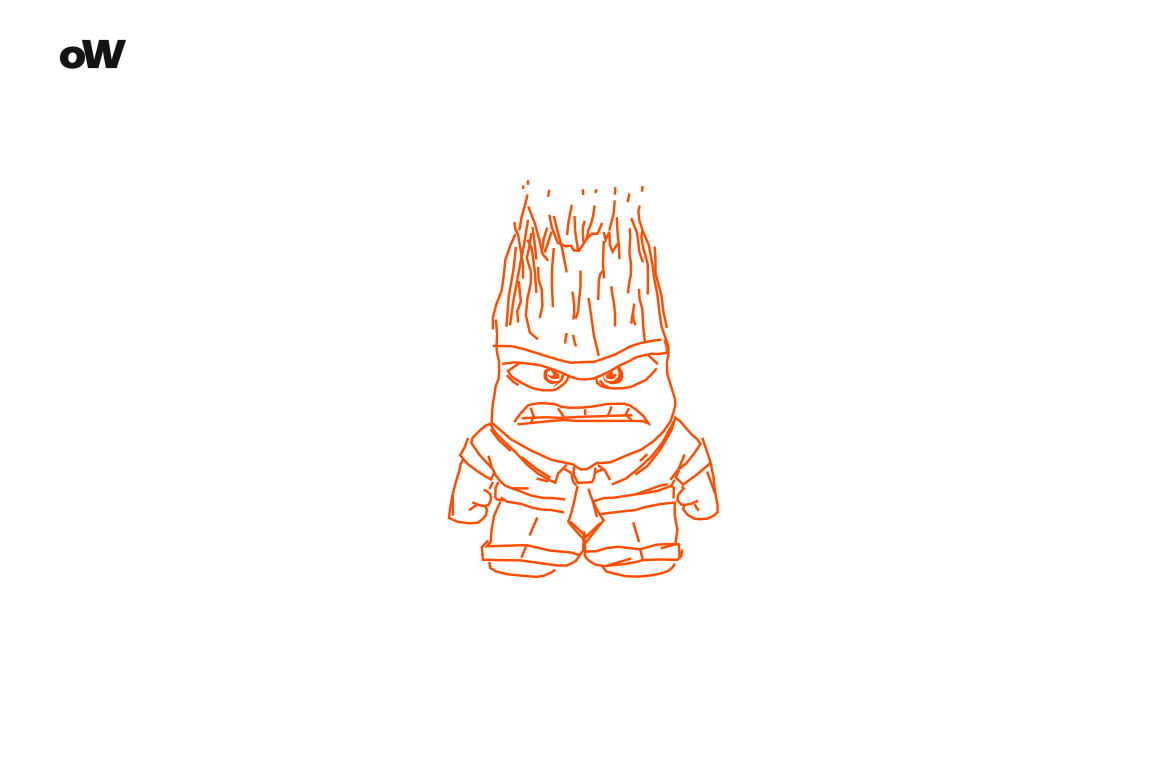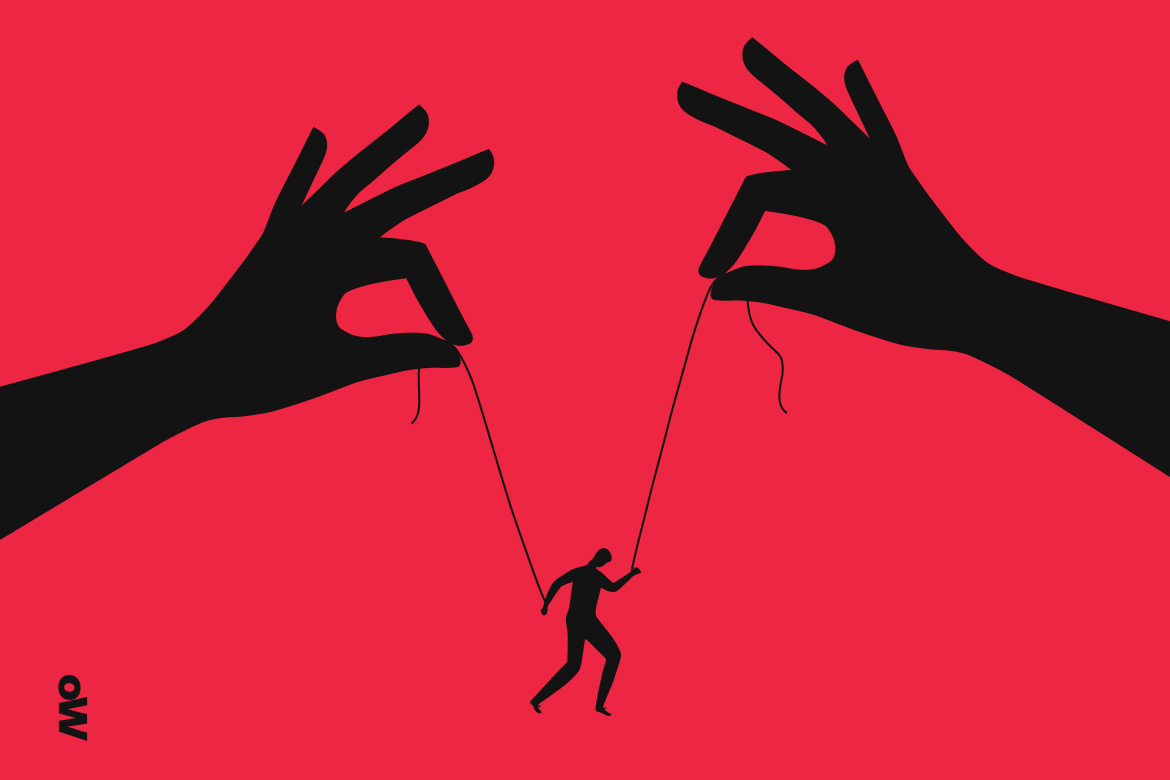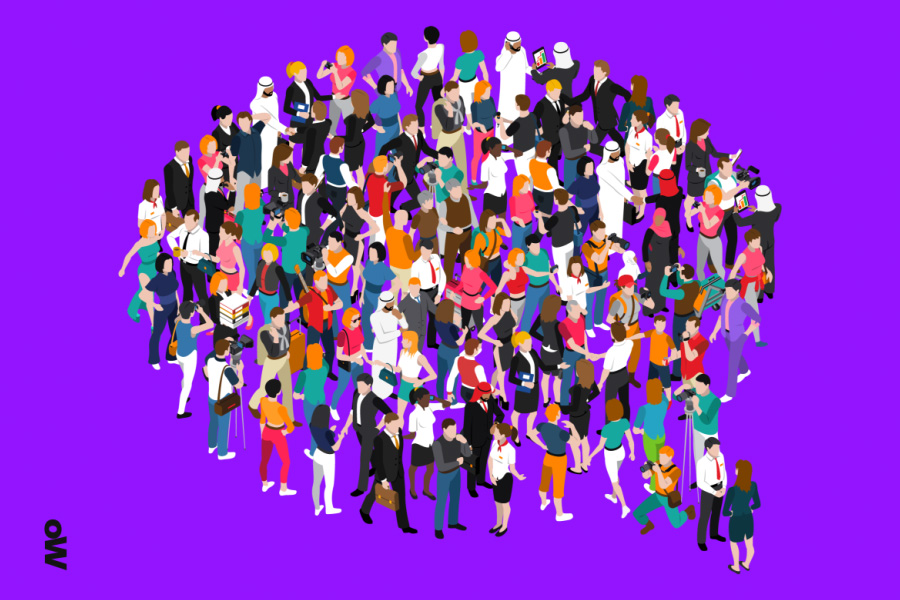Quiz: Are You Homophobic?
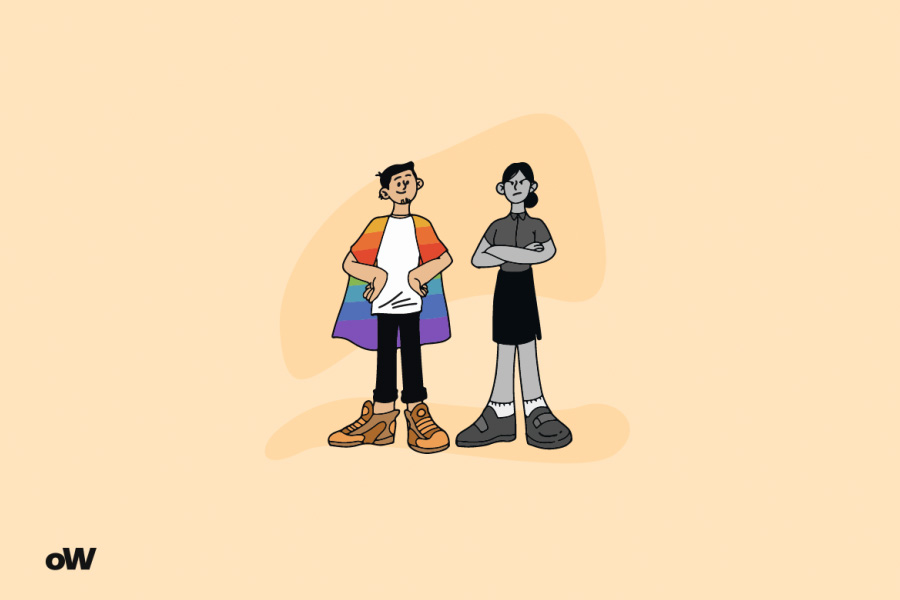
In modern society, there is a gradual trend towards developing tolerance towards all people, regardless of their gender, religion, orientation, etc. However, there are still many stereotypes about various members of society, including homosexuals, bisexuals, pansexuals, and other sexual minorities. Education can help eliminate stereotypes, including through a homophobic quiz, where you can test and expand your knowledge about different groups of people.
Who Is a Homophobe?
Homophobes are people who feel dislike or fear towards members of the LGBTQ+ community. Negative emotions can be expressed explicitly or can be hidden. Some homophobes actively protest against sexual minorities, while others keep their thoughts and emotions to themselves, but this does not change the essence of the problem.
The presence of homophobia hinders the full functioning of members of sexual minorities. They may not be hired, persecuted, humiliated, or expressed disapproval in other forms. We should always strive for tolerance and understanding, and homophobic quizzes are an excellent way to draw attention to the issue and learn more about the LGBTQ+ community.
Homophobic Quiz: Underlying Indicators
There are numerous indicators that can identify homophobia. We have gathered the most important ones and created a homophobic quiz based on them. Some of them indicate explicit dislike that is consciously maintained by a person. However, there are also many indicators of hidden homophobia that are not consciously recognized by the homophobe.
The main indicators of hidden homophobia are:
- You feel uncomfortable around members of the LGBTQ+ community, even if you don’t harbor explicit dislike towards them.
- There are LGBTQ+ individuals in your social circle, but you fear that others might mistake you for one of them.
- You can reveal someone’s sexual orientation without their consent.
- You often use homophobic slurs.
- You believe that it is okay to be gay, but you oppose same-sex marriage.
- You are not opposed to same-sex marriage, but firmly believe that homosexuals should not be allowed to adopt or raise children.
- You think that children raised in same-sex families will not grow up “normal”.
- You believe that homosexuals should not display their affection in public.
- It is offensive and unacceptable to you if someone mistakes you for a homosexual. You react aggressively even to jokes on this topic.
The described and many other features indicate hidden homophobia. These features may not always be obvious, so our homophobic quiz will help you better understand the hidden forms of discrimination. Such signs are often found in kind, responsive, and sensitive people who do not want to offend anyone. They strive to show tolerance towards people with “deviations from the norm,” which they consider to be representatives of the LGBTQ+ community, although they do not want to admit it.
Internal Homophobia
Another common type of homophobia is internal homophobia. We also took this into account in the homophobic quiz. This concept implies a fear of accepting oneself as a representative of the LGBTQ+ community. You can recognize the presence of internal homophobia in yourself by the following signs:
- You are afraid to openly declare yourself, even to a trusted circle of people.
- You present your partner to others as a brother/sister/friend/colleague, thinking that it is simply more convenient and safer.
- You avoid identifying yourself as gay/lesbian/trans, etc. and say something like “I’m not gay. I don’t like men. I just fell in love with a specific person, and what can I do if he happens to be a man?”
- You avoid the LGBTQ+ community as well as places where their representatives often gather.
The presence of the described and similar signs indicates that it is difficult for you to accept yourself and your desires.
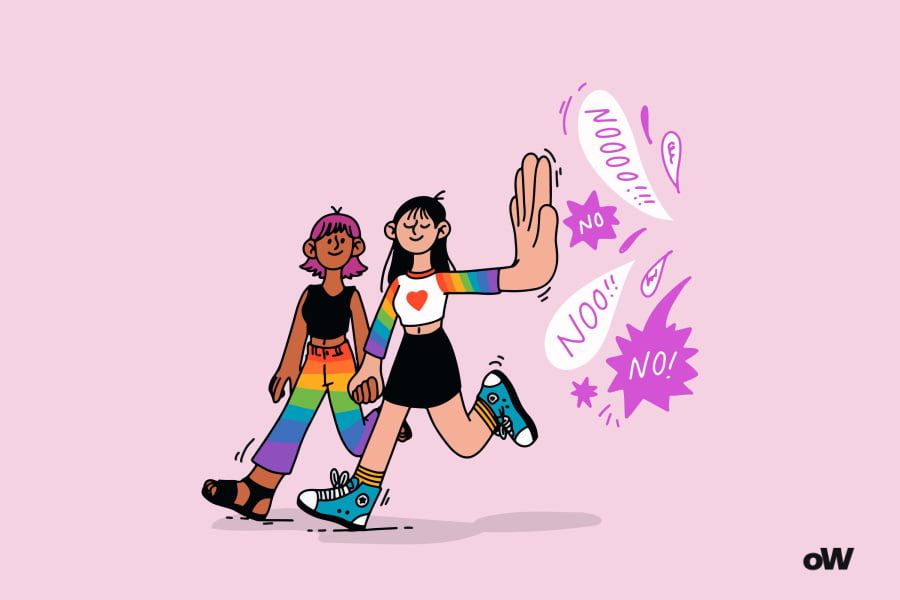
Where Does Homophobia Come From?
From the term “homophobia,” it can be understood that the basis of this phenomenon is fear. It is often difficult to recognize homophobia in oneself, as many people do not understand the nature of such fear. Of course, the term does not imply the fear that a homosexual will attack or harm you. It refers to a completely different fear, namely, the fear of one’s own desires.
The fact is that most people have at least some doubts about their identity, including gender identity, even if they do not want to accept it. The fear of being among a community of people who are still condemned by a significant part of the population can lead to direct hostility towards them. Therefore, taking a homophobic test can help people become aware of such prejudices in their lives.
Not long ago, same-sex relationships could result in execution or imprisonment. Most religions still do not recognize sexual minorities, and same-sex relationships were only recently removed from psychiatric textbooks. Social pressure makes many people afraid of the consequences of their desires, which is the essence of homophobia.
How Can a Homophobic Quiz Help?
While some may have a negative reaction to the idea of taking a homophobic quiz, it can actually be a useful exercise in self-awareness. The questions asked in such a quiz can help a person recognize their fears and prejudices that can lead to homophobia.
For example, questions may relate to how you feel about people with non-traditional sexual orientations, how you react to mentioning homosexuality in conversation, how you feel when you have to interact with a homosexual person, and so on.
The answers to these questions can help a person understand how deeply rooted homophobia is in their consciousness and behavior. Moreover, realizing these fears and prejudices can help start working on them and gradually overcome them.
Of course, a homophobic quiz is not a panacea, but it is one way to start a conversation on this topic and become aware of your own thoughts and feelings.
In Conclusion
Homophobia remains a phenomenon that continues to generate significant interest among scholars and the general public. It remains relevant and intersects with many fields, including psychology, sociology, medicine, and law. To understand the nature of this phenomenon and develop effective methods for combating it, we must show awareness and a willingness to engage in dialogue.
It is important to remember that homophobia is not something that can be avoided or removed like old furniture. It is a complex process that requires time, effort, and sometimes the help of professionals. Homophobic quizzes can be one way to better understand homophobia, recognize it within ourselves, and start working on ourselves. The main thing is not to be shy or afraid of our feelings, and also not to forget that tolerance, including tolerance towards sexual minorities, is one of the most important values in modern society.
How to Play?
Click the "Start Quiz" button and answer each quiz question honestly. There are no right or wrong answers. You may encounter multiple-choice questions or statements to rate on a scale of agreement. Once you finish the quiz, you'll receive results that provide insight into your personality traits, including strengths and weaknesses. Use this information to increase self-awareness and make positive changes.
How many questions does this quiz have?
13 Questions
How long does it take to complete this quiz?
3 Minutes
Questions Overview
- Yes, all the time
- Occasionally
- Rarely
- Never
- Yes, extremely uncomfortable
- Somewhat uncomfortable
- Not really
- Not at all
- Yes, all the time
- Occasionally
- Rarely
- Never
- Yes, definitely
- It's possible
- I don't know
- No, it's not a choice
- Yes, all the time
- Occasionally
- Rarely
- Never
- Yes, extremely uncomfortable
- Somewhat uncomfortable
- Not really
- Not at all
- No, they should have fewer rights
- They should have some rights, but not all
- Yes, they should have the same rights as everyone else
- I'm not sure
- Yes, all the time
- Occasionally
- Rarely
- Never
- Yes, extremely uncomfortable
- Somewhat uncomfortable
- Not really
- Not at all
- Yes, all the time
- Occasionally
- Rarely
- Never
- Yes, all the time
- Occasionally
- Rarely
- Never
- Yes, definitely
- It's possible
- I don't know
- No, everyone has the right to love who they want
- Yes, all the time
- Occasionally
- Rarely
- Never

